When the sun sets over the Bosphorus, Istanbul doesn’t sleep-it wakes up in a hundred different ways. From rooftop lounges with panoramic views to underground clubs pulsing with electronic beats, from shisha cafes where poets still recite verses to late-night kebab joints buzzing with laughter, Istanbul’s nightlife isn’t just about drinking or dancing. It’s about belonging. And in a city that straddles two continents, three religions, and decades of political tension, that’s nothing short of revolutionary.
Where East Meets Electronica
Start in Beyoğlu, the beating heart of Istanbul’s night scene. Here, İstiklal Avenue turns into a pedestrian river of people after 9 PM. You’ll find jazz clubs tucked between vintage bookshops, where a 70-year-old saxophonist plays alongside a 22-year-old producer from Ankara using a laptop and a MIDI controller. One of the most talked-about spots is Bar 66, a converted 1920s bank vault with exposed brick walls and a sound system that could shake the foundations of the Galata Tower. Locals say it’s the only place in Turkey where a Turkish housewife in a headscarf, a gay couple holding hands, and a German expat in a leather jacket all dance to the same track without a second glance. The music here isn’t just imported. Istanbul’s DJs are remixing Ottoman folk melodies with techno, blending ney flute samples with bass drops. Artists like Yasemin Sari and Baris K have built international followings by fusing traditional instruments with modern beats. You won’t find this kind of cultural fusion in Dubai or Beirut. It’s uniquely Istanbul-and it’s thriving.Queer Spaces That Defy Expectations
In 2025, Istanbul is home to more than 15 openly LGBTQ+-friendly venues, up from just three a decade ago. That growth didn’t happen by accident. It came from years of activism, quiet solidarity, and spaces that refused to be erased. Reina, the legendary nightclub on the Bosphorus, reopened in 2023 after a three-year closure tied to zoning disputes. It returned bigger, louder, and more inclusive than ever. On Friday nights, the dance floor is a mosaic: trans women in sequins, Kurdish activists in traditional dress, Russian expats in crop tops, and tourists from Brazil and Japan all moving as one. The staff don’t ask for ID unless you look under 25. No one asks about your gender. No one cares. Down in Kadıköy, on the Asian side, Bar Mavi has become a sanctuary. Open since 2018, it hosts weekly poetry nights for queer refugees, drag bingo on Sundays, and silent disco events where everyone dances with headphones on-no music, no judgment. The owner, a former lawyer who fled persecution in Ankara, says their rule is simple: “If you’re kind, you’re welcome.”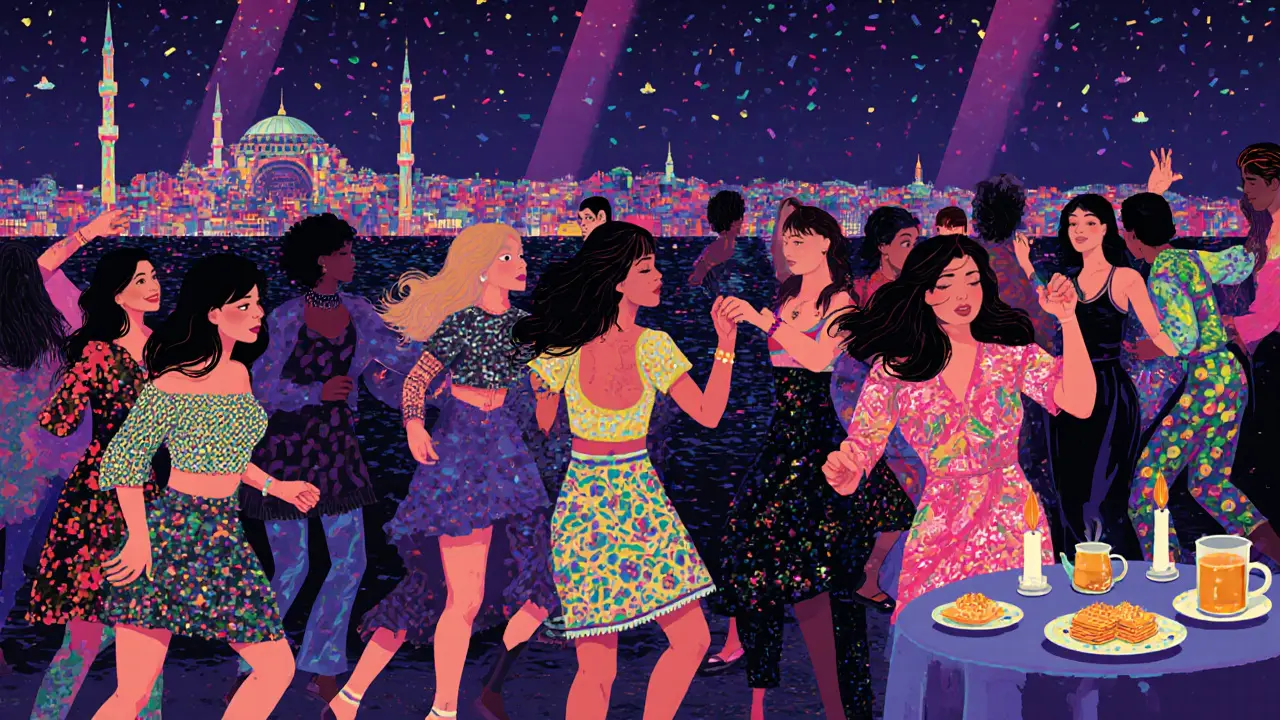
Food That Never Sleeps
Nightlife in Istanbul isn’t just about drinking. It’s about eating. And the city’s after-dark food scene is as diverse as its people. Head to Çiya Sofrası in Kadıköy after midnight. The kitchen stays open until 3 AM, serving regional dishes most tourists have never heard of: spicy lamb dumplings from Diyarbakır, grilled quail with pomegranate molasses from Urfa, and sweet cheese pastries soaked in honey from the southeast. The staff don’t speak English. You point. You taste. You learn. In Taksim, Ali Usta serves the best döner in the city-juicy, fatty, perfectly charred-and it’s open until 5 AM. Locals swear it’s the only place where you can order a döner with a side of Turkish coffee and a shot of raki at 4 in the morning and not get judged. The regulars? A mix of taxi drivers, university students, night-shift nurses, and retired sailors. No one asks where you’re from. They just slide you a glass.Quiet Corners, Loud Hearts
Not every night in Istanbul needs bass and neon. Some of the most powerful moments happen in silence. On the shores of the Princes’ Islands, İzmirli Kafe on Büyükada opens at 11 PM with no music, just candlelight and books. People come to read, write letters, or just sit with the sound of waves. It’s run by a woman in her 60s who lost her husband in the 2016 earthquake. She doesn’t serve alcohol. She serves tea, baklava, and stories. You leave feeling lighter, even if you came in heavy. In the old Armenian neighborhood of Kumkapı, the Çarşı Kafe hosts weekly open-mic nights where poets, musicians, and storytellers from every background take the stage. Last month, a Syrian refugee recited a poem in Arabic about his journey to Istanbul. A Turkish grandmother in the back cried. Then she stood up and sang a lullaby her mother taught her. No one clapped. No one needed to.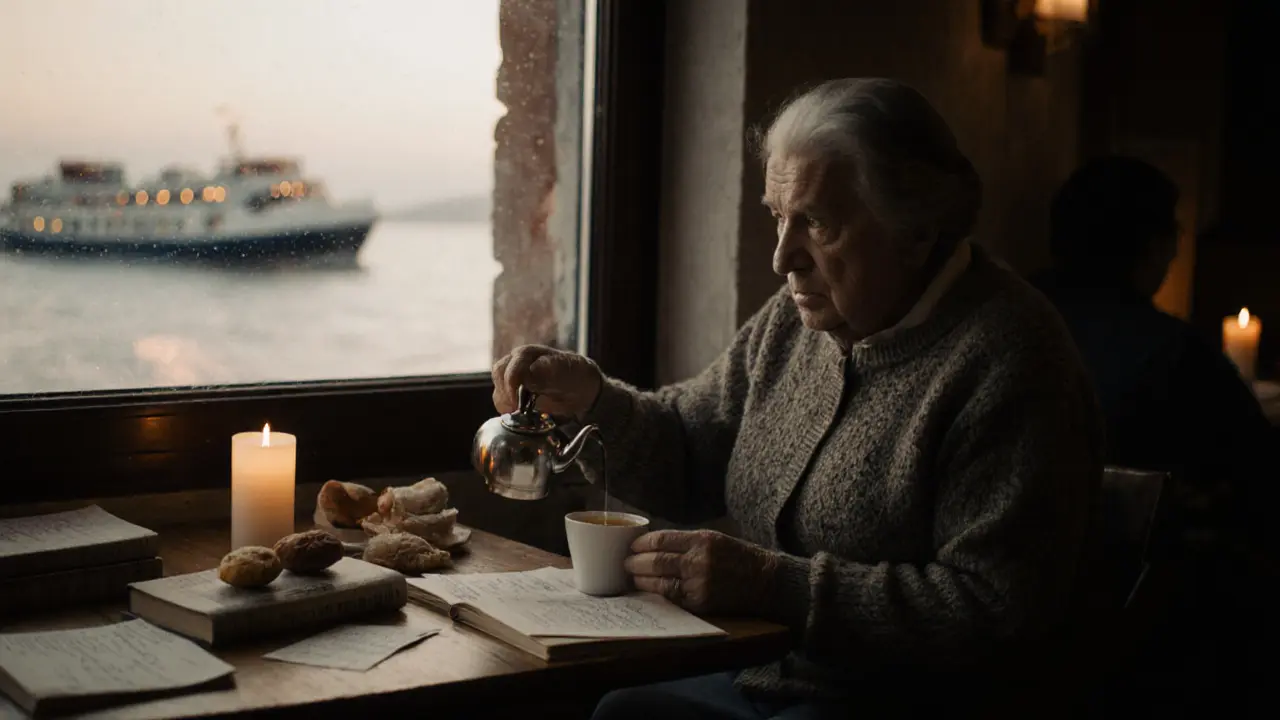
Why This Matters Now
Istanbul’s nightlife thrives because it refuses to be one thing. It’s not just a party. It’s a protest. A healing space. A home. In a world where cities are becoming sanitized, where corporate chains replace local spots, and where identity is policed, Istanbul’s night scene says something radical: you belong here, no matter who you are. It’s not perfect. There are still raids. There are still closures. But the community keeps rebuilding. New venues open every month. Artists collaborate across borders. Tourists leave changed. Locals say, “We don’t wait for permission to exist. We just do.”What to Do Tonight
If you’re visiting Istanbul and want to feel its soul after dark, here’s how:- Start at Bar 66 for music that blends old and new.
- Head to Reina for the full sensory experience-dance, drink, and feel the energy.
- Try Çiya Sofrası after midnight for food you won’t find anywhere else.
- Find Bar Mavi in Kadıköy for a quiet, welcoming vibe.
- End your night at İzmirli Kafe on Büyükada, if you’re up for a ferry ride.
Is Istanbul’s nightlife safe for solo travelers?
Yes, especially in areas like Beyoğlu, Kadıköy, and the Princes’ Islands. The nightlife scene is generally very welcoming to solo visitors, including women and LGBTQ+ travelers. Stick to well-lit, busy streets after midnight, and avoid isolated alleyways. Most bars and clubs have security staff who are trained to handle issues respectfully. Locals are often happy to point you in the right direction if you ask.
Do I need to speak Turkish to enjoy Istanbul’s nightlife?
No, but knowing a few phrases helps. Many staff in popular nightlife spots speak English, especially in Beyoğlu and Kadıköy. But in smaller venues, like Kumkapı cafes or island kafes, Turkish is the main language. A simple “Teşekkür ederim” (thank you) or “Ne önerirsiniz?” (What do you recommend?) goes a long way. You’ll find people are patient, friendly, and often eager to help you connect.
Are there any dress codes for Istanbul clubs?
Most clubs in Istanbul have no strict dress code. You’ll see everything from jeans and sneakers to evening gowns and glitter. Reina and other upscale venues might suggest smart casual-no flip-flops or sportswear-but there’s no enforcement. In underground spots, comfort and self-expression matter more than fashion. The only rule? Don’t wear offensive symbols or uniforms. Respect is the dress code.
What’s the best time to go out in Istanbul?
Istanbul doesn’t rush. Most people start heading out around 10 PM. Clubs don’t fill up until after midnight, and the real energy kicks in between 2 AM and 4 AM. If you want to experience the full vibe, stay late. Many places don’t close until 6 AM, and breakfast spots open right after. Don’t expect bars to be packed at 9 PM-that’s dinner time.
Can I find vegan or vegetarian options in Istanbul’s nightlife?
Absolutely. Istanbul has one of the most vibrant plant-based scenes in the region. Places like Vejeteryen in Beyoğlu and Green House in Kadıköy serve vegan mezes, jackfruit kebabs, and lentil-stuffed grape leaves. Even traditional restaurants now offer vegan versions of classics. Ask for “vejeteryen” or “bitkisel”-you’ll be surprised how common it is.
Don’t just visit Istanbul’s nightlife. Live it. Let it surprise you. Let it change you. The city doesn’t ask you to fit in. It asks you to show up-and that’s the most inclusive invitation of all.
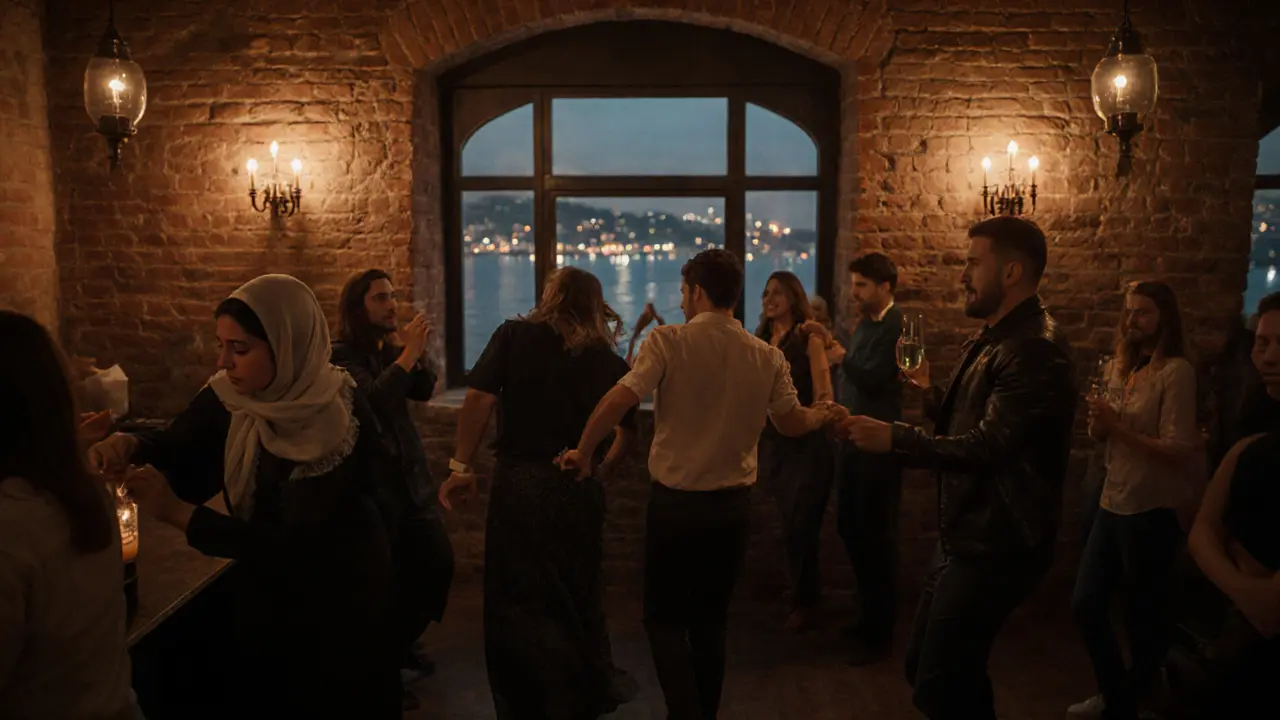

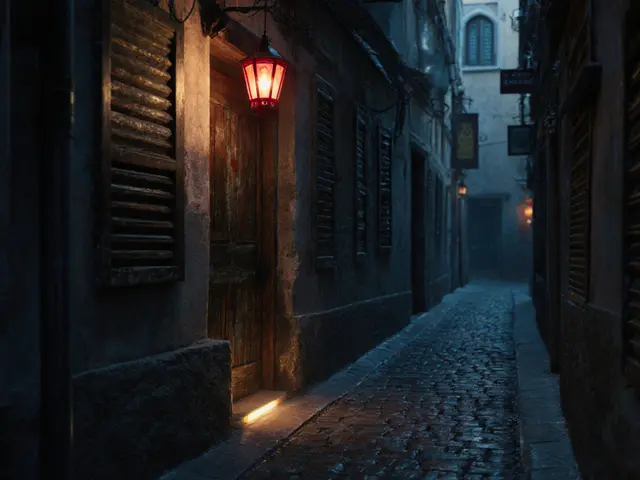
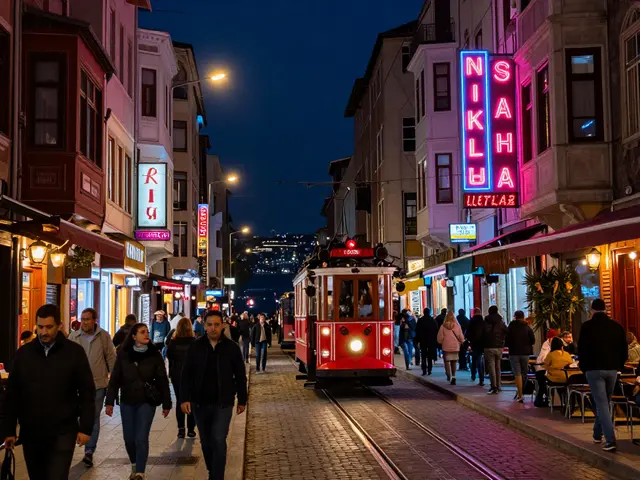
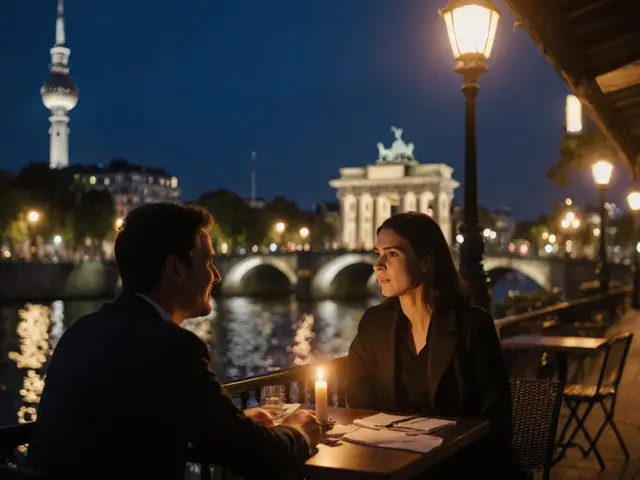
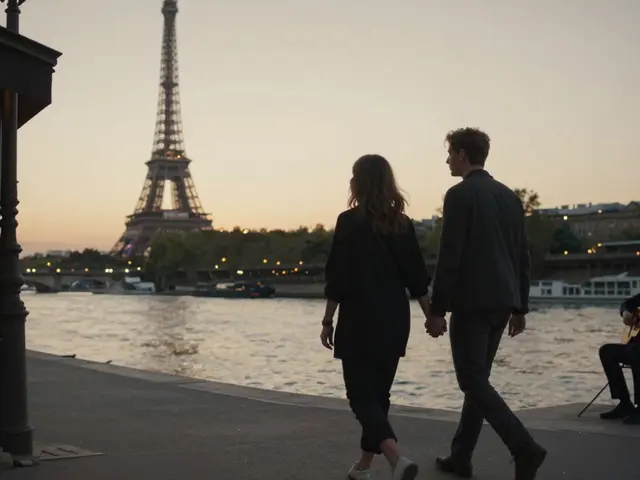
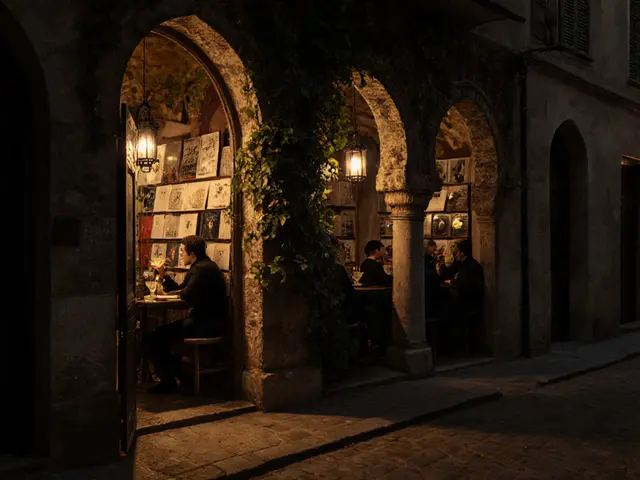

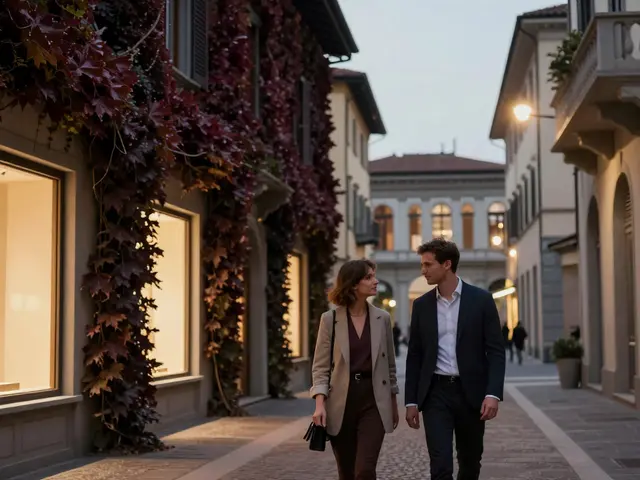
Write a comment